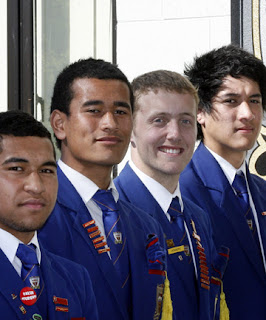Call for papers
12th Pacific islands Political Studies Association (PIPSA) Conference
Hosted by The University of the South Pacific, Alafua Campus, Apia, Samoa,
December 8-9 2011
Pacific politics, Pacific communities
This is a general call for papers for the 12th PIPSA conference to be held in Apia, Samoa, hosted by the University of the South Pacific, Alapua Campus. The conference aims to explore a range of issues pertaining to the relationship between politics and community in the Pacific. The broad theme Pacific politics, Pacific communities attempts to capture the complex relationship between communities and politics at the local, national, regional and international levels in the Pacific. It covers a range of issues and individual papers may focus on any of these specific areas:
...participatory democracy; community and grassroots governance; sustainable development; regime change; media and democracy; migration and development; conflict and conflict resolution; regional geo-politics; regional intervention; human rights; law enforcement; land and indigenous rights; youth participation; sovereignty and autonomy; sea-level rise; poverty and marginalization; gender participation; aid and development; cultural identity; citizenship; religion and politics; human security; regional security; globalization and free trade; community violence; intra-regional challenges; nation-building; constitutional and legal reform; electoral democracy; civil society engagement; cultural and ethnic diversity; political mobilization through virtual social networks...
The 100 word abstract should be sent to Sue Rider (sue.Rider@anu.edu.au), Australian National University or Folole Asaua (f.asaua@auckland.ac.nz), University of Auckland, by 30 April 2011 and the 4,000 word paper by October 30 2011. Other details of the conference will be sent out later.
_____________________________________________________________________________________________________________
PIPSA committee: President, Steven Ratuva (University of Auckland); Vice-President, David Hegarty (Australian National University); Secretary, Jon Schultz (University of Melbourne); Tarcisius Kabutaulaka (University of Hawaii); Anne Brown (University of Queensland); Sandra Tarte (University of the South Pacific); Michael Leach (Swinburne University).
